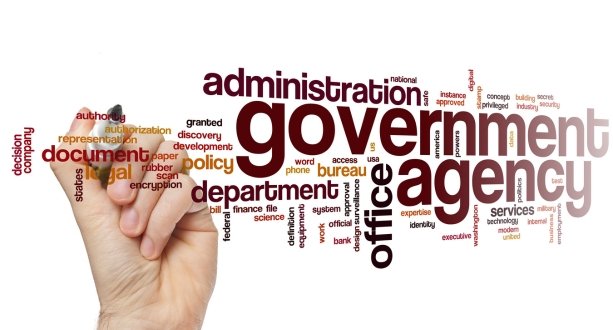What is Email Solutions for Government Agencies
Government agencies are integral components of the administrative machinery of a nation. They are responsible for implementing and enforcing various policies, laws, and regulations set forth by the government. These agencies operate at different levels, including federal, state, and local, and cover a wide range of areas such as healthcare, education, transportation, defense, law enforcement, and environmental protection.
Government agencies play a crucial role in the functioning of a country by carrying out tasks that are essential for the overall development and well-being of its citizens. They are often established through legislation and have specific mandates and objectives that align with the priorities of the government. These agencies are typically headed by appointed officials or directors who are responsible for overseeing their operations.
One of the primary functions of government agencies is policy implementation. After laws and regulations are formulated by the legislative branch of the government, it is the responsibility of these agencies to put them into practice. For example, the Environmental Protection Agency (EPA) in the United States is tasked with enforcing environmental laws and regulations, monitoring pollution levels, and promoting sustainable practices.
Government agencies also provide essential services to the public. Agencies such as the Department of Education are responsible for formulating and implementing policies related to education, ensuring that quality education is accessible to all citizens. Similarly, healthcare agencies, such as the National Institutes of Health (NIH), focus on promoting public health, conducting medical research, and providing healthcare services.
In addition to policy implementation and service delivery, government agencies also play a crucial role in regulatory functions. They create and enforce regulations that govern various industries and sectors to ensure compliance with laws and standards. For instance, the Food and Drug Administration (FDA) in the United States is responsible for regulating the safety and efficacy of food, drugs, and medical devices.
Government agencies often act as custodians of public resources and assets. Agencies responsible for managing public lands, natural resources, and infrastructure work towards their preservation, maintenance, and sustainable use. They may oversee parks and recreation areas, wildlife reserves, or manage transportation networks such as roads, bridges, and airports.
Furthermore, government agencies are involved in collecting and analyzing data to inform policymaking and decision-making processes. They conduct research, gather statistics, and monitor trends to assess the effectiveness of existing policies and identify areas that require attention. This information is crucial for evidence-based policy formulation and evaluation.
To ensure transparency and accountability, government agencies are subject to various oversight mechanisms. They are required to maintain records, submit reports, and undergo audits to ensure their activities are conducted in accordance with established rules and regulations. Oversight may be conducted by internal audit departments, legislative bodies, or independent entities, depending on the governance structure of the country.
Government agencies are vital components of the administrative framework of a country. They are responsible for implementing policies, delivering services, enforcing regulations, managing resources, and collecting data. Through their work, these agencies contribute to the overall development and welfare of citizens while ensuring transparency and accountability in governance.
Email Solutions for Government Agencies
Government agencies, at both the federal and state levels, rely heavily on efficient communication channels to carry out their operations effectively. Email communication plays a crucial role in enabling seamless collaboration, information sharing, and decision-making within these agencies. However, government agencies often face unique challenges when it comes to email solutions due to strict security requirements, compliance regulations, and the need for robust data management. In this article, we will explore the key considerations and features that government agencies should look for in email solutions.
One of the primary concerns for government agencies is the security of sensitive information transmitted through emails. Government agencies deal with a vast amount of classified and confidential information, including personal data, financial records, and national security details. Therefore, it is crucial for email solutions to provide robust security measures, such as encryption and multi-factor authentication, to protect against unauthorized access or data breaches. Additionally, email solutions for government agencies should have built-in spam filters and malware protection to prevent phishing attacks and malware infections.
Compliance with regulations and data retention policies is another crucial aspect of email solutions for government agencies. Government agencies are subject to various regulatory frameworks, such as the Freedom of Information Act (FOIA) and the Federal Records Act (FRA), which require them to retain and manage their email communications for a specified period. Email solutions should provide features that enable easy archiving, search, and retrieval of emails to meet these compliance requirements. They should also have robust audit trail capabilities to track and monitor email activities for accountability purposes.
Interoperability is another significant consideration for government agencies when choosing email solutions. Government agencies often need to collaborate and exchange information with other agencies, both within their jurisdiction and at the federal level. Therefore, it is essential for email solutions to support standard protocols, such as POP3, IMAP, and SMTP, to ensure seamless interoperability with other email systems. Compatibility with common office productivity suites, such as Microsoft Office and Google Workspace, can also enhance collaboration and productivity for government employees.
Scalability and reliability are critical factors for government agencies that handle a large volume of email traffic on a daily basis. Email solutions should be capable of handling high volumes of incoming and outgoing emails without disruptions or delays. They should also provide reliable service uptime and disaster recovery mechanisms to ensure uninterrupted access to email services, even during unforeseen events or system failures. Additionally, government agencies may benefit from cloud-based email solutions that offer scalability, flexibility, and cost-effective storage options.
Furthermore, email solutions for government agencies should include robust administrative controls and management features. Administrators should have the ability to create and manage user accounts, define access levels and permissions, and enforce security policies across the agency. The solution should also provide comprehensive reporting and analytics capabilities to monitor email usage, detect anomalies, and generate audit reports as required. Moreover, integration with existing identity and access management systems can streamline user provisioning and authentication processes.
Why Email Solutions for Government Agencies is used?
Email solutions for government agencies are vital tools that help streamline communication, enhance security, and ensure efficient information management. In today’s digital era, where electronic communication plays a crucial role in government operations, email solutions have become indispensable for agencies at all levels. This article will delve into the reasons why government agencies rely on email solutions and highlight the benefits they offer.
First and foremost, email solutions provide a standardized and reliable means of communication within government agencies. They enable seamless information exchange between departments, divisions, and even between different levels of government. This promotes collaboration, enables timely decision-making, and enhances overall operational efficiency. With email solutions, government employees can quickly share documents, exchange ideas, and coordinate tasks, leading to smoother workflows and enhanced productivity.
One of the primary advantages of using email solutions in government agencies is the improved security they offer. Email solutions come equipped with advanced encryption protocols and security measures to protect sensitive information. Given the nature of government operations, which often involve classified or confidential data, ensuring the security of communication is of utmost importance. Email solutions employ various encryption techniques to safeguard messages, attachments, and other sensitive content, reducing the risk of unauthorized access, data breaches, and cyber threats.
Moreover, email solutions enable government agencies to meet regulatory compliance requirements. Many countries have specific regulations regarding the storage, archiving, and retrieval of government-related communications. Email solutions offer features that allow agencies to adhere to these regulations, such as automatic archiving, retention policies, and e-discovery capabilities. These functionalities not only help agencies comply with legal obligations but also facilitate efficient record-keeping and audit processes.
Another significant advantage of email solutions for government agencies is the ability to integrate with other systems and platforms. Modern email solutions can seamlessly integrate with various tools and applications used by government agencies, such as document management systems, customer relationship management (CRM) software, and collaboration platforms. Integration capabilities allow for smooth information flow across different systems, reducing manual data entry, minimizing errors, and improving data accuracy.
Furthermore, email solutions offer advanced features that enhance productivity and organization within government agencies. These include features like calendar integration, task management, and email filtering options. Calendar integration allows employees to schedule meetings, set reminders, and manage their time effectively. Task management features enable individuals and teams to assign, track, and complete tasks within the email interface. Email filtering options help users prioritize and categorize incoming messages, reducing clutter and improving efficiency.
Email solutions also support effective communication with external stakeholders, such as citizens, businesses, and other government entities. They provide government agencies with official email addresses and domains, establishing a professional and trustworthy image. These email addresses can be used for communication with the public, responding to inquiries, and disseminating official announcements. By maintaining clear and consistent communication channels, email solutions help foster transparency, accountability, and public trust.
Email solutions have become essential tools for government agencies due to their numerous benefits. They enable streamlined communication, enhance security, facilitate regulatory compliance, integrate with other systems, and offer productivity-enhancing features. By leveraging email solutions, government agencies can improve collaboration, information management, and overall operational efficiency. As technology continues to evolve, email solutions will likely play an increasingly significant role in government operations, helping agencies navigate the challenges of the digital age effectively.
Conclusion
In conclusion, email solutions for government agencies must address the unique requirements and challenges faced by these organizations. Security, compliance, interoperability, scalability, reliability, and administrative controls are crucial aspects that should be considered when selecting an email solution. By leveraging the right email solution, government agencies can enhance their communication capabilities, improve efficiency, ensure data security, and meet regulatory requirements effectively.
Frequently Asked Questions
Government agencies should prioritize email solutions with strong encryption protocols, multi-factor authentication, data loss prevention, and secure archiving. These features help safeguard sensitive information and prevent unauthorized access.
Email solutions designed for government agencies often have built-in compliance features that enable the enforcement of regulations such as the Freedom of Information Act (FOIA) and records retention policies. These solutions help agencies meet legal requirements for email management and archiving.
Yes, many email solutions provide integration capabilities with existing government systems such as directory services, document management systems, and customer relationship management tools. This integration streamlines workflows and improves efficiency.
Email solutions for government agencies typically offer robust archiving capabilities that can handle large volumes of emails. They often include advanced search and retrieval functionalities to facilitate easy access to archived messages when needed.
Yes, most modern email solutions provide mobile access through dedicated apps or web interfaces optimized for mobile devices. This allows government employees to access their email securely from smartphones or tablets while on the go.




